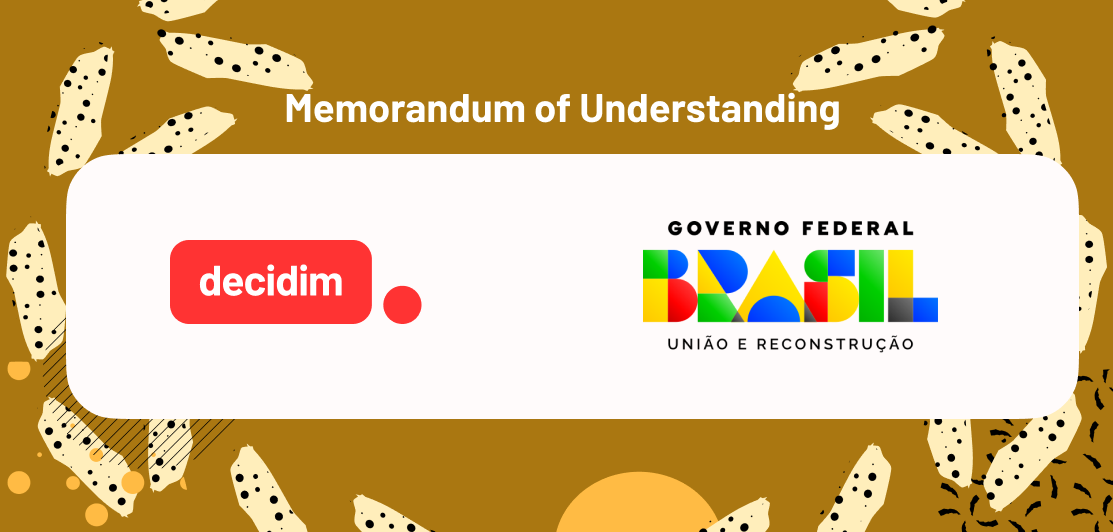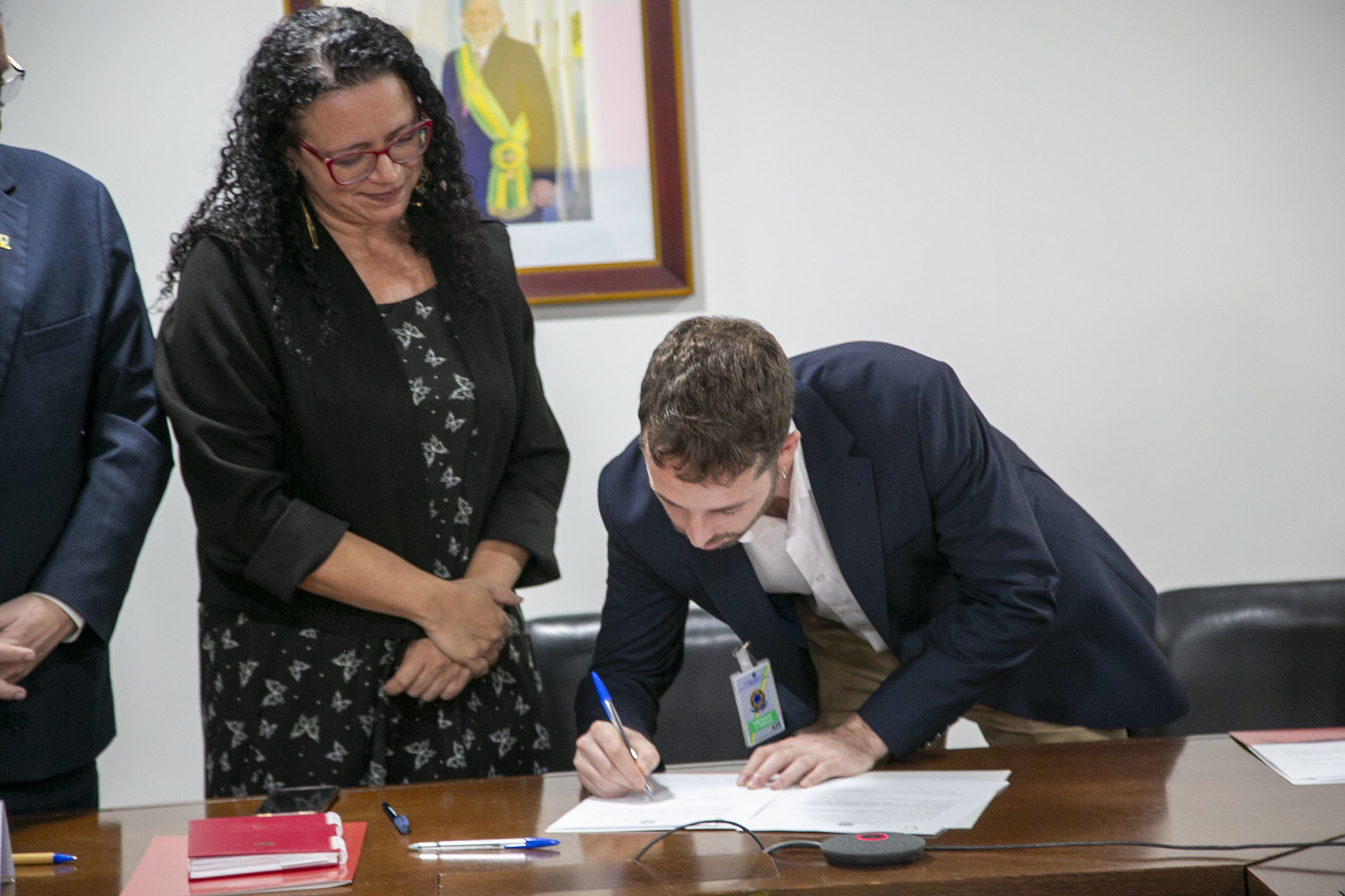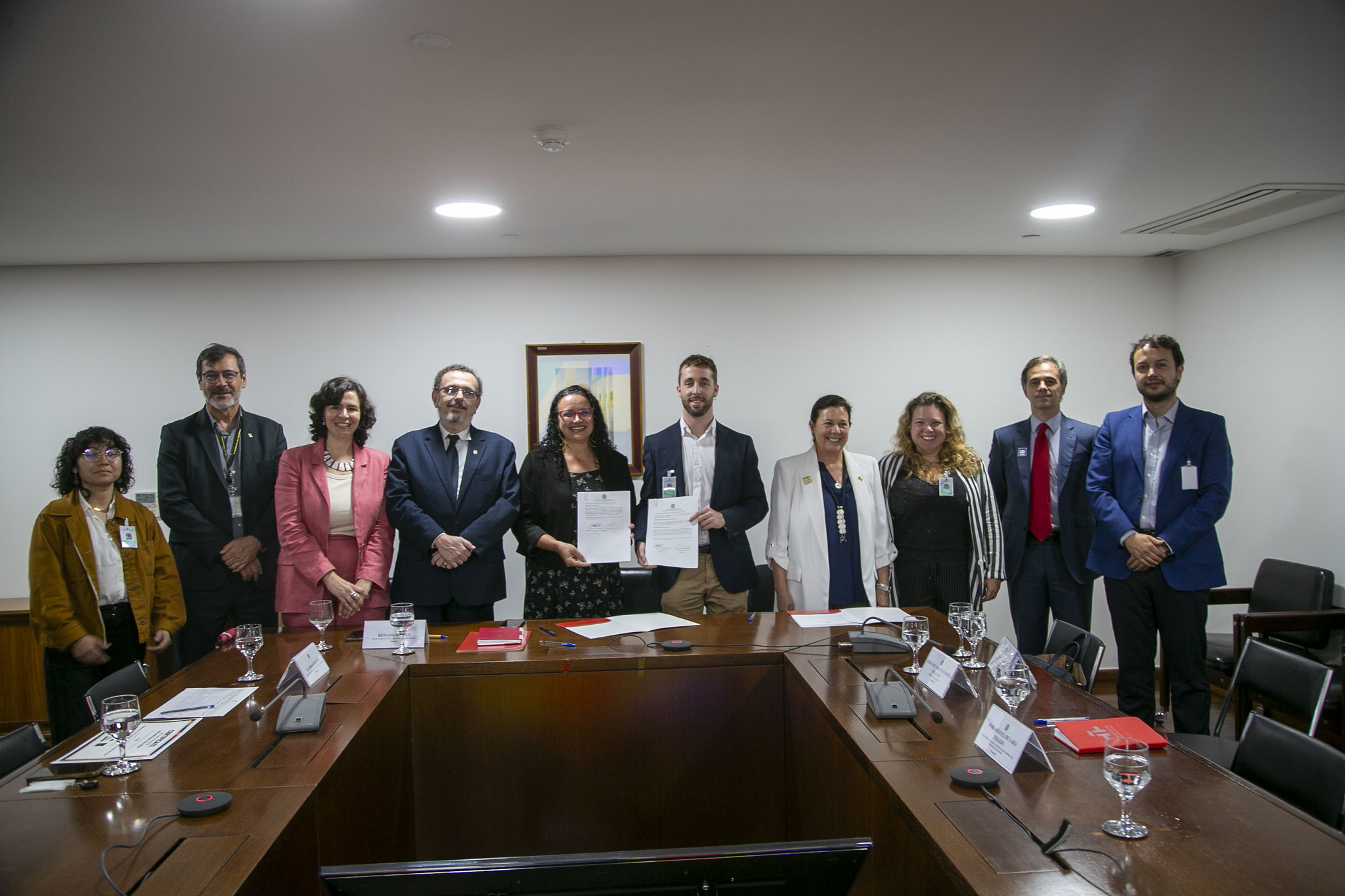
On December 5th, the Decidim Association and the Brazilian Government formalized their partnership by signing a Memorandum of Understanding (MoU) at a ceremony held in the Presidency Palace. This MoU establishes a collaborative framework aimed at advancing social participation, digital democracy, and the use of free software.
The agreement commits both parties to promoting the use and adoption of Decidim as a public infrastructure for participation, reinforcing its role as a Digital Public Good. Signatories included Nil Homedes and Kelli Mafort, alongside notable attendees such as Renato Simoes, Mar Fernández-Palacios, Spanish Ambassador María del and Lázaro Tuñón, the Spanish representative of the Open Government Partnership (OGP).

All this is the continuation of a year of work with the Brasil Participativo team, led by the Directorate of Digital Participation of the General Secretariat of the Presidency, and with the technical support of the Lappis Lab team of the University of Brasilia and the Insituto Cidade Democratica.
In this way, the Brazilian government is taking a decisive step by engaging in the collective governance of a Digital Public Good, thus reaffirming its commitment to the Decidim project. Brazil is the first government outside Catalonia to sign a collaboration agreement with Decidim, paving the way for other governments around the world to follow in its footsteps.
The MoU marks a pivotal moment in Decidim’s journey toward internationalization and the establishment of a global governance model. This model will be a reference when it comes to thinking about how to implement governance that involves public institutions from all over the world in coordination with a community, with the aim of maintaining and promoting a digital common good.
This marks the beginning of a new stage of collaboration. As of today, we start working to strengthen the Decidim community in Brazil and Latin America. In the coming months, efforts will focus on forging new regional partnerships and promoting Decidim adoption throughout the region.
Brazil's leadership in participatory democracy serves as an inspiration, driven by the shared belief that social participation is a catalyst for transformation and that free software is crucial for fostering inclusive, democratic digital spaces.
Read the text of the MoU here.


